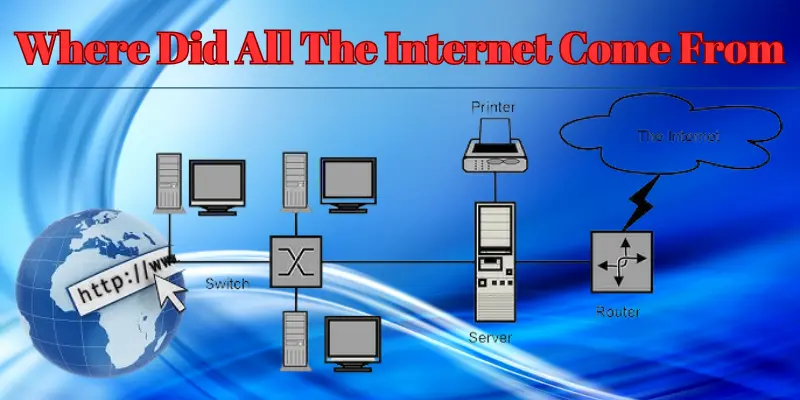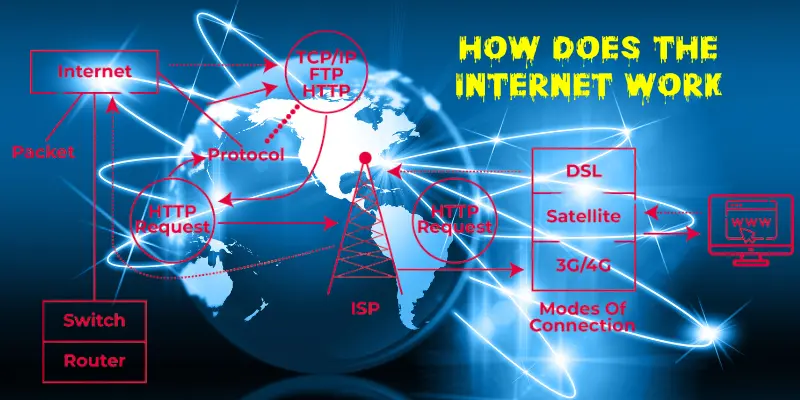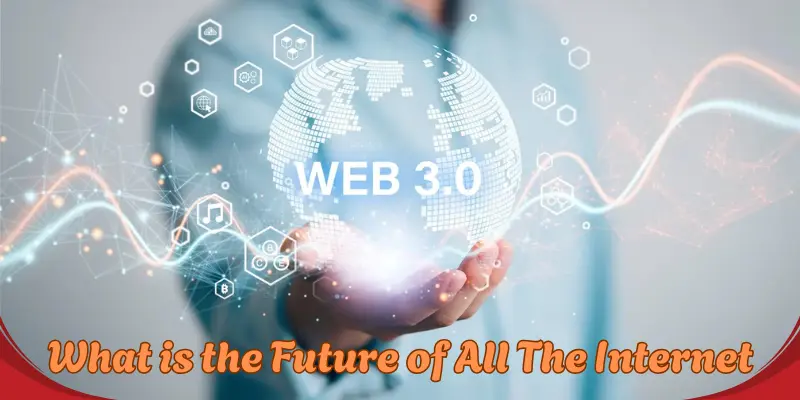All The Internet – Facts, Risks and How It All Works Simply
Published: 14/05/2025
All The Internet means everything you see, read, and use online. It includes websites, games, videos, social media, and more. People think it’s just one big thing, but it’s made of many small parts. Some parts are easy to find, like Google or YouTube. Other parts are hidden and not shown in search results. No one can see all of it at once. But every time we go online, we use a piece of the internet.
Table of Contents
Where Did All The Internet Come From?
The phrase All The Internet started as a funny way to talk about the whole online world. People on social media and forums began using it when they saw something big or crazy online.

It became part of internet jokes, like saying, “I’ve seen all the internet today!” It doesn’t mean someone really saw everything. It’s just a fun way to say they saw a lot. Over time, many people began using this phrase to talk about how huge and full the internet feels.
Is “All The Internet” a Real Thing?
All The Internet sounds like one big thing, but it’s not something you can hold or see all at once. The internet is made of millions of websites, apps, videos, and messages. No one person or company owns it all. Even search engines like Google only show a small part. There are hidden parts of the internet that normal users never see. So, “All The Internet” is not a real thing you can visit. It’s just a big idea that means a lot of online stuff.
What’s Inside the Internet?
The internet looks invisible, but it’s made of many real things. It includes data, websites, emails, apps, servers, and more. Here are some include inside All The Internet.
- Websites
- Videos
- Games
- Pictures and Memes
- Messages and Emails
- Apps and Tools
- Social Media
- Music and Sounds
- Deep Web
- Dark Web (Not Safe)
Who Runs All the Internet?
No single person or company controls the entire internet. Instead, it’s managed by different global groups that keep it safe, working, and connected for everyone.
- Big Companies: Major companies like Google, Facebook, Amazon, and Microsoft help run the internet.
- Internet Service Providers (ISPs): These are companies like Comcast, AT&T, and others that give people the ability to connect to the internet at home.
- Governments: Countries have rules and laws that control how the internet works.
- Internet Backbone: The backbone of the internet is a huge network of cables and servers that connect countries and cities around the world.
- Website Owners and Creators: Every website on the internet has someone who owns or runs it. These could be big businesses, bloggers, or even individuals who want to share information or make money online.
- Tech Engineers and Programmers: The people who build and fix the websites, apps, and tools we use every day.
- Cloud Services: Cloud companies like Google Cloud and Amazon Web Services help store and move data safely across the internet.
How Does the Internet Work?
The internet works by sending tiny data packets through wires, cables, and signals. These travel between devices using rules called protocols to reach the right place.

- Devices Connect to the Internet
- Internet Service Providers (ISPs)
- Requests Go to Servers
- Servers Send Back Information
- You See the Website
- Data Travels Through Cables and Wires
- Cloud Services and Storage
- Internet Safety (Encryption)
The internet works by linking millions of devices using signals, servers, and data routes. It sends and receives information in just seconds, keeping the world connected.
Can We See All the Internet?
No, we can’t see the entire internet. What we use daily is just a small part. Much of it stays hidden, like private networks and the deep web.
- No One Can See Everything
- The internet is huge, and no one person can see it all. There are billions of websites and pages that we can’t access or even find.
- The Surface Web
- This is the part of the internet that is visible to everyone. Websites like Google, YouTube, and Facebook are part of this.
- The Deep Web
- There’s another part called the deep web. It’s not hidden, but you need special tools to reach it. Examples include private databases or passwords.
- The Dark Web (Unsafe)
- A small, secret part of the internet where illegal activities happen. It is not safe to visit, and most people should avoid it.
- Why We Can’t See It All
- The internet is constantly growing, and new websites are created every day. Some information is locked or protected, and only certain people can access it.
What Are the Dangers on the Internet?
The internet offers countless opportunities, but it also comes with risks. From cyberbullying and identity theft to scams and misinformation, online dangers can impact anyone.
- Cyberbullying
- Scams and Fraud
- Inappropriate Content
- Online Predators
- Viruses and Malware
- Addiction
- Identity Theft
The internet offers many benefits but also carries risks like cyberbullying, scams, and privacy issues. Being cautious, using security measures, and staying informed can help protect against these dangers, ensuring a safer online experience.
What Are the Good Things on the Internet?
The internet offers many benefits, from easy access to information to connecting with others around the world, making life more convenient and enjoyable.
- Learning and Education
- Connecting with Friends and Family
- Entertainment
- Job Opportunities and Career Help
- Creativity and Expression
- News and Updates
- Shopping and Convenience
- Support and Advice
What is the Future of All The Internet?
The future of the internet holds exciting possibilities, from faster connections to more immersive experiences. Innovations will continue shaping how we connect and share information.

- Faster and Smarter Internet
- More Virtual Reality (VR) and Augmented Reality (AR)
- Artificial Intelligence (AI) Everywhere
- The Internet of Things (IoT)
- Better Privacy and Security
- More Global Access
- Smarter Search Engines and Content
- The Rise of Decentralized Internet
- Environmental Impact and Sustainability
The future of the internet will bring faster speeds, more connected devices, and new opportunities, but it will also require careful management of privacy and security.
Advantages and Disadvantages of All The Internet
The internet offers countless benefits, from easy communication to endless information. However, it also brings challenges like privacy risks and misinformation.
Benefits of All The Internet
The internet offers countless advantages, making our lives easier by providing instant access to information, communication, and entertainment anytime, anywhere.
| Pros of All The Internet |
| Instant Communication: The internet lets people talk to each other instantly, no matter where they are in the world. |
| Access to Information: You can find answers to almost any question online, from learning new skills to understanding complex topics. |
| Entertainment and Fun: The internet offers endless entertainment, like movies, music, games, and social media. |
| Convenience: Shopping, banking, and even learning can be done from home, making life easier and saving time. |
| Job Opportunities: The internet opens doors to remote work, online businesses, and many career options. |
Drawbacks of All The Internet
The internet offers countless benefits, but it also comes with significant drawbacks, such as privacy concerns, misinformation, and online addiction, which can affect daily life.
| Pros of All The Internet |
| Cyberbullying: People can be hurtful online, making others feel unsafe or upset. |
| Misinformation: There’s a lot of fake news that can be hard to separate from real facts. |
| Privacy Risks: Personal information can be stolen or misused by hackers. |
| Addiction: Spending too much time online can lead to neglecting real-life responsibilities and relationships. |
| Security Threats: Viruses and malware can harm devices and steal data. |
Common FAQs About All the Internet
Here, we’ll address the most frequently asked questions about the internet, providing clear and simple answers to help you navigate the online world.
The internet is a global network of computers that allows people to communicate, share information, and access various services and websites online.
To stay safe, use strong passwords, avoid sharing personal information online, be careful when clicking on links, and always update your security software.
The internet connects the world, helping people share knowledge, access services, communicate, and learn in ways that were not possible before.
The internet is the global network that connects computers, while the World Wide Web (WWW) is the collection of websites and online resources that can be accessed via the internet.
You can improve internet speed by checking your connection, updating your router, limiting the number of devices connected, and using an ethernet cable instead of Wi-Fi.
Yes, the internet offers many online courses, tutorials, and educational resources that help people learn new skills and even earn degrees.
The internet makes it easier to communicate with others, shop, learn, and entertain yourself, but it can also be distracting or cause over-reliance on technology.
Slow internet can be caused by issues like high traffic on your connection, problems with your Internet Service Provider (ISP), or outdated hardware or software.
Conclusion
The internet is a powerful tool that connects us, provides information, and opens doors to endless possibilities. While it has many advantages like convenience and entertainment, it also comes with challenges like privacy risks and misinformation. By using the internet responsibly and safely, we can make the most of its benefits while protecting ourselves from potential dangers. As technology continues to evolve, understanding and adapting to the internet will remain essential for everyone.

- Be Respectful
- Stay Relevant
- Stay Positive
- True Feedback
- Encourage Discussion
- Avoid Spamming
- No Fake News
- Don't Copy-Paste
- No Personal Attacks

- Be Respectful
- Stay Relevant
- Stay Positive
- True Feedback
- Encourage Discussion
- Avoid Spamming
- No Fake News
- Don't Copy-Paste
- No Personal Attacks





